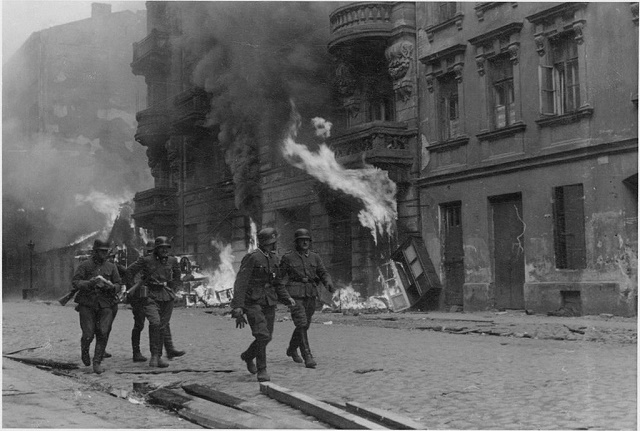Over seventy years ago, the Warsaw Ghetto saw an uprising which resulted in the deaths of thousands of Jewish residents. The resistance against the Nazi occupation in Poland caused the deaths of less than twenty Nazis, with less than one hundred Nazi soldiers even being wounded, but was still a major event in the war. The Warsaw Ghetto altercation not only saw thirteen thousand Jews killed, but well over fifty thousand deported.
In honor of the horrific event, which stands as one of the most remembered revolts against Nazi occupation, many Jewish residents of Poland as well as other Polish civilians gathered to pay tribute to the 71st anniversary of the uprising. While it may not have been successful, due to the fact that Germany still wiped out the Warsaw Ghetto, it showed that those who were occupied were growing stronger and more unified. They were no willing to simply stand by and let their people be eradicated. This spirit is a large part of what made the resistance worth honoring.
Those who took part in the tribute to the Jewish heroes of the revolt said a number of prayers at the city’s monument to the fallen resistance members. Many also laid wreaths at the memorial before leaving for UmschlagPlatz, where residents of the Warsaw Ghetto were formerly transported to Treblinka. Cramped into cattle wagons, these people would find themselves soon at the concentration camp at which hundreds of thousands of Jews from Poland lost their lives, the ITV News reports.
Even before they were transported to the labor camps, these citizens were not treated well. They were put into highly dense areas with hundreds of thousands of residents within only around three square kilometers. Many of those living in the Warsaw Ghetto did not even get the chance to die from violence and cruelty, as they were killed by famine and disease. It was the horrific details of their resettlement plan, however, that led to revolt.
The Warsaw Ghetto, its living conditions and its uprising have been remembered by numerous forms of pop culture over the years. While there were some more freedoms and less harsh conditions than at the camps, it was basically a transition point before many of the residents found themselves in much crueler circumstances. This is why the Warsaw Ghetto is so vastly remembered in a very similar light to that in which the concentration camps are remembered. It was more or less a place where the Jews of Poland waited to die, and the uprising unfortunately did little to improve the situation.
